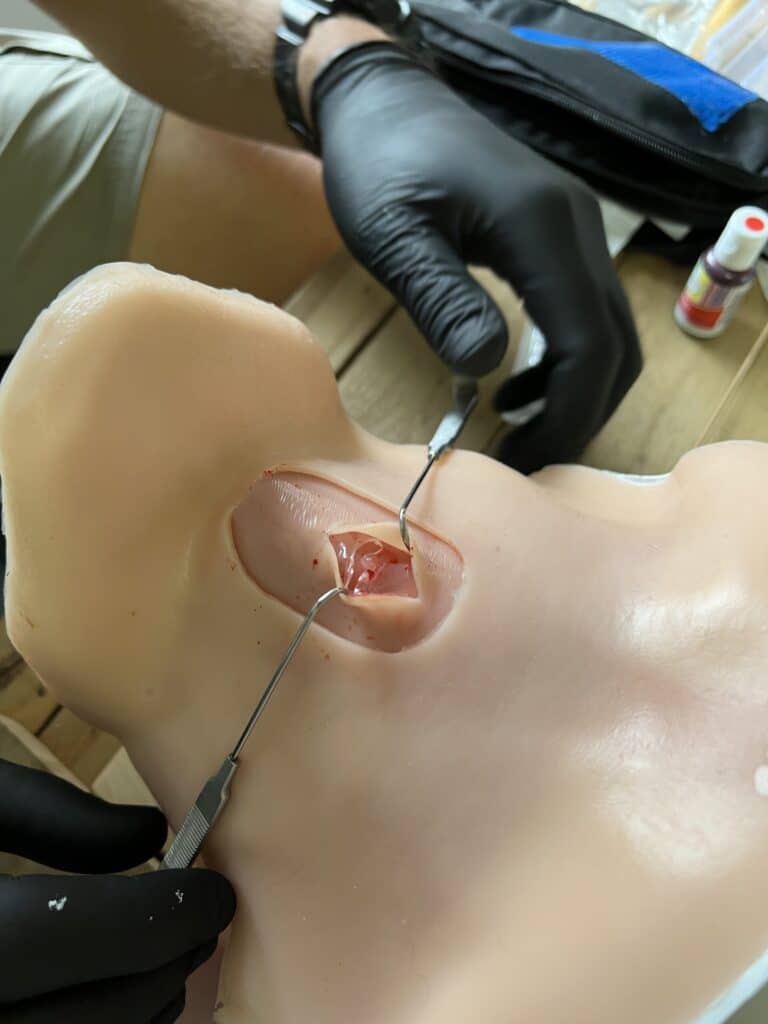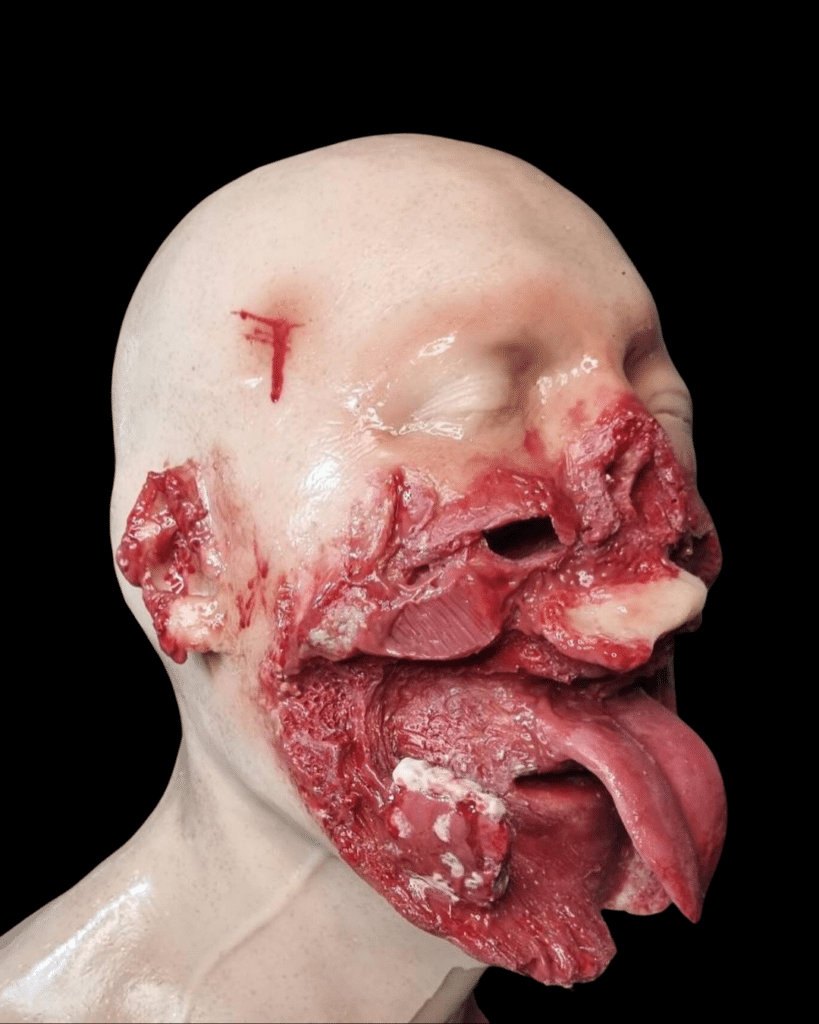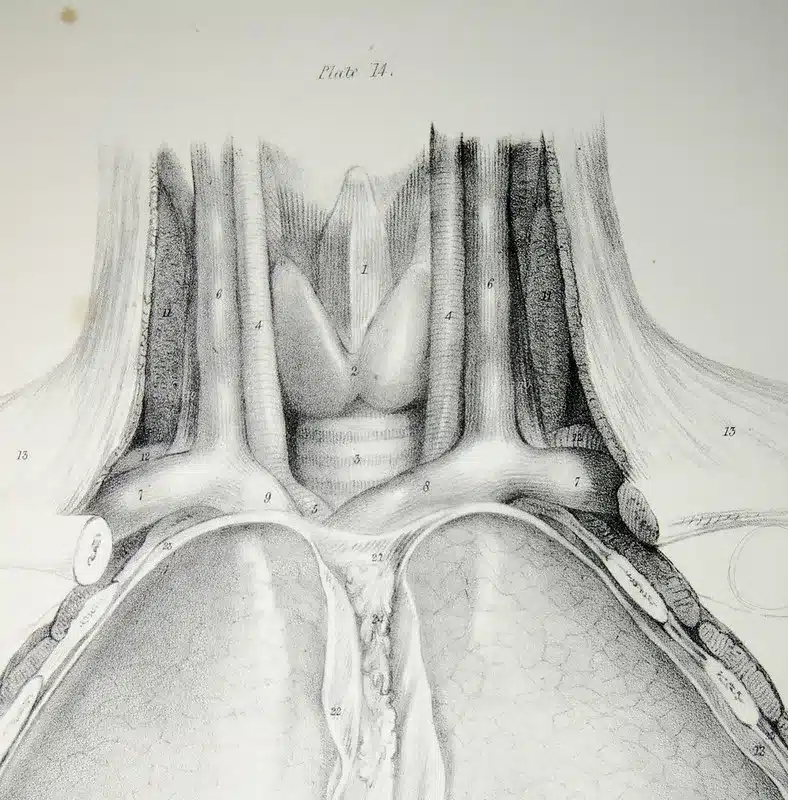Introduction
The margin for error is razor-thin in high-stakes professions like healthcare, particularly in crisis scenarios involving combat or emergencies. Cricothyroidotomy (CRIC) is a crucial life-saving procedure in such circumstances. But how do medical professionals prepare for such a demanding, high-stress event? The answer lies in advanced medical simulation training, and more specifically, through CRIC trainers. This comprehensive guide aims to demystify the pivotal role that CRIC trainers play in medical simulation training and equip you with the knowledge to select the best tools for your training needs.
What is Cricothyroidotomy?
Cricothyroidotomy is a surgical procedure that involves making an incision through the skin and cricothyroid membrane to establish an airway, usually as a last resort when endotracheal intubation is unattainable. The procedure has its roots in military medicine, often employed in battlefield scenarios where quick airway establishment is necessary. Over time, its application has expanded into emergency medical settings, including ambulances and trauma centers. However, mastering the technique requires precision, skill, and practice, making specialized training vital for medical professionals.

The Role of Medical Simulation in Skill Acquisition
Before diving into CRIC trainers specifically, it’s essential to understand the broader landscape of medical simulation. This pedagogical approach replicates real-world medical scenarios to enhance skill acquisition, clinical reasoning, and decision-making. Medical simulation aims to emulate situations as closely as possible, allowing learners to practice without risk to human patients. While mannequins, virtual reality, and computer-based simulations are commonly used, CRIC trainers hold a specific and vital niche within this educational universe.
Importance of CRIC Trainers in Medical Simulation
Realistic Simulation
Quality CRIC trainers are engineered to mimic human tissue’s texture and resistance, unlike standard medical mannequins. The elevated fidelity of these models offers a more authentic experience, crucial for honing the tactile skills necessary for Cricothyroidotomy.
Skill Mastery Through Repetition
Skill retention in medical procedures often follows the ‘use it or lose it’ principle. Repeated practice on a CRIC trainer allows for skill consolidation, reducing the cognitive load when performing this delicate procedure in real life.
Reduced Risk
Practicing on a CRIC trainer not only boosts proficiency but also minimizes the potential risks associated with conducting the procedure on actual patients. Errors in a simulated environment offer valuable learning experiences without real-world consequences.
Key Features to Look for in a CRIC Trainer
Anatomical Accuracy
CRIC trainers should feature anatomically correct landmarks to guide trainees. Incorrect landmarks could lead to faulty technique, which may compromise the procedure’s success when performed on actual patients.
Durability
Given the repetitive nature of skill acquisition, a CRIC trainer must withstand extended use without significant wear and tear.
Portability
A CRIC trainer should be easily transportable for on-site training and multi-location courses without compromising its functional attributes.
Conclusion and Final Thoughts
Investing in a high-quality CRIC trainer is beneficial and indispensable for any institution committed to high-stakes medical training. Rigorous, repeated, and risk-free practice on a CRIC trainer can dramatically elevate skill levels, ultimately translating into better patient outcomes under stressful conditions. As healthcare continues to advance, tools like CRIC trainers will undoubtedly play an ever-increasing role in preparing medical professionals for the challenges that lie ahead.
To learn more about CRIC Trainers from Battlefield Partners, click here.

The Battlefield Partners Approach to CRIC Trainers in Medical Simulations
While various CRIC trainers are available in the market, Battlefield Partners distinguishes itself through a rigorous focus on realism, durability, and anatomical alignment.
Uncompromising Realism
One of the significant features of our CRIC trainers is the unrelenting focus on providing a highly realistic experience. Developed in consultation with experts in emergency medicine, our trainers accurately mimic human tissue’s texture, density, and resistance. This degree of realism allows trainees to become well-acquainted with the conditions they will face in the field, significantly improving their operational readiness.
Anatomical Accuracy
Anatomical landmarks are crucial for a successful cricothyroidotomy. Battlefield Partners’ CRIC trainers offer a close approximation and a highly accurate replication of anatomical landmarks. This allows medical professionals to train in a risk-free environment while still experiencing the high level of detail required for precise medical procedures.
Built for Repeated Use
Durability is another area where our CRIC trainers excel. Recognizing that mastery comes through repetition, we’ve engineered our devices to withstand thousands of simulations without compromising quality. This translates to long-term cost savings and ensures a consistent training experience.
Portability for On-site Training
Training can happen anywhere — in a classroom, a field environment, or even transit. Our CRIC trainers are designed with portability in mind, making it easier for medical professionals to get the training they need, no matter the location.
Global Reach and Impact
It’s one thing to say a product is effective; it’s another to back it up with numbers. Battlefield Partners is proud to share that customers are utilizing our CRIC trainers in 10 countries worldwide. Moreover, we know that over 6000+ CRIC simulations have been completed using our devices. These numbers aren’t just a testament to our commitment to quality but an indicator of the global need for practical, realistic, and durable CRIC trainers.
Aligned with Tactical Combat Casualty Care Guidelines
Importantly, all aspects of our CRIC trainers are aligned with the Tactical Combat Casualty Care (TCCC) Guidelines. This ensures that training and simulations using our devices meet the highest possible medical and ethical standards, further emphasizing the role of our CRIC trainers in improving patient outcomes.
By integrating these core principles into our CRIC trainers, Battlefield Partners aims to set a new standard in medical simulation training. Our mission is not just to create a product but to save lives by providing realistic, durable, and anatomically accurate training solutions.
Learn more about our other products that support TCCC simulations.
Citations
Disclaimer: This article is intended for informational purposes only and is not a substitute for professional medical advice or training. It should not be used as a complete guide for performing Cricothyroidotomy or other medical procedures. Always consult a qualified healthcare professional or institution for proper training and guidance.
Keywords: CRIC Trainers, Medical Simulation, Cricothyroidotomy, Skill Acquisition, Medical Training, Tactical Combat Casualty Care
Meta Description: This definitive guide explores the critical role of CRIC trainers in medical simulation, covering everything from their importance and features to their role in skill mastery and risk reduction.



